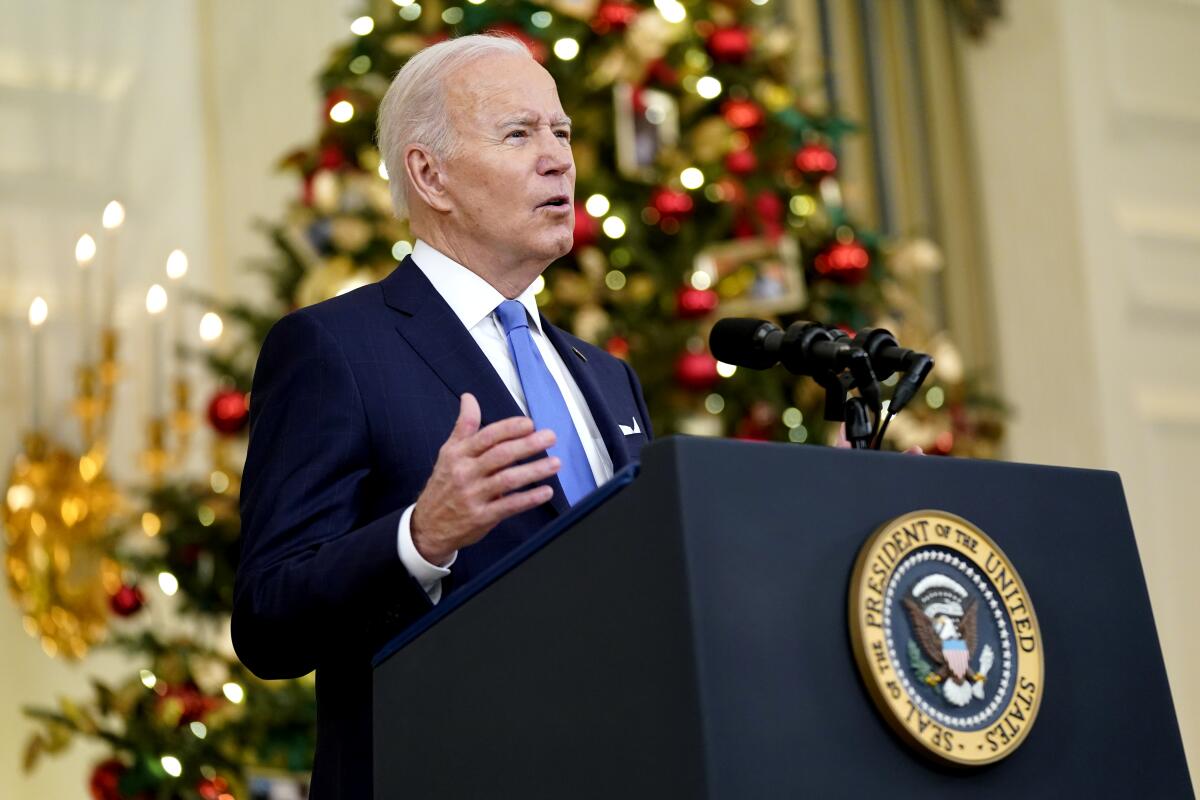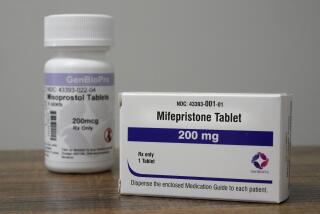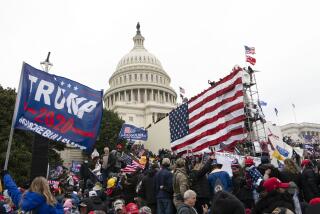Supreme Court agrees to decide on Biden’s vaccine mandate for hospitals, other employers

WASHINGTON — The Supreme Court announced Wednesday it will decide on a fast-track basis whether President Biden has the legal authority to order hospitals and other large employers to require their workers to be vaccinated for COVID-19.
The justices said they will hear arguments Jan. 7 on what has become a red-state-versus-blue-state divide over the government’s authority to require people to be vaccinated.
The key question before the court involves whether Congress gave the president broad power to regulate the workplace and require employees to be vaccinated or regularly tested for a highly infectious virus.
The legal showdown over the vaccination rules comes as the Omicron variant of the coronavirus has swept across the nation, casting a shadow over the holidays and forcing Americans to brace for a third year of living with a pandemic.
Two separate rules are at issue before the court. In one set of cases, the justices will decide whether the Medicare and Medicaid acts gave the secretary of Health and Human Services the authority to require workers at hospitals, nursing homes and other healthcare providers to become vaccinated or undergo regular testing.
The law says that such facilities, if they receive federal funds, may be required to take measures to protect the “health and safety” of their patients. When Biden proposed the rule in September, the administration said nearly one-third of hospital workers were not vaccinated against COVID-19 and thereby could threaten the health of their patients.
The other rule has greater reach and could affect employers with 100 or more employees. The Occupational Safety and Health Act authorized the Labor Department to adopt emergency measures to protect workers from newly revealed threats. In the past, this authority was used to regulate against asbestos, benzene and other dangerous toxins.
The Biden administration invoked this authority to adopt an emergency measure that would force these larger employers to require workers to provide proof they had been vaccinated. If employees could not provide such documentation, they would be required to undergo frequent testing. The rules allow for exceptions based on medical or religious reasons.
Last week, a federal appeals court in Ohio, in 2-1 decision, allowed the OSHA rule to go into effect as scheduled in January.
In response, business groups, corporations, Republican state attorneys general and religious groups filed emergency appeals asking the court to put the OSHA rule on hold. They argued that a highly infectious virus is not like a toxic substance in the workplace and does not authorize the government to impose a vaccination requirement.
Meanwhile, Republican-led states challenged the rules for the healthcare industry and won rulings from judges appointed by President Trump in Louisiana, Missouri and Texas.
“During a pandemic such as this one, it is even more important to safeguard the separation of powers set forth in our Constitution to avoid erosion of our liberties,” wrote U.S. District Judge Terry A. Doughty in the case brought by Louisiana. “The public interest is served by maintaining the constitutional structure and maintaining the liberty of individuals who do not want to take the COVID-19 vaccine.”
The three District Court judges issued injunctions that have blocked the healthcare rule from taking effect in 24 states. Appellate courts allowed those injunctions to stay in place. Last week, U.S. Solicitor Gen. Elizabeth Prelogar filed an emergency appeal on behalf of the administration that asked the justices to lift those orders and allow the Medicare regulation to take effect.
Initially, the Supreme Court asked for responses from both sides in the OSHA and healthcare cases and set a deadline of Dec. 30. In such emergency appeals, justices would normally rule on written arguments and issue a brief order on the question of whether to block the rules while considering the merits of each side’s arguments.
Instead, the justices switched course and announced they would hear full arguments on an expedited basis on Jan. 7, meaning they are almost sure to rule on the legality of the rules on an accelerated timeline.
The health industry cases are is Biden vs. Missouri and Becerra vs. Louisiana, and the workplace cases are National Federation of Independent Business vs. Department of Labor and Ohio vs. Department of Labor.
More to Read
Get the L.A. Times Politics newsletter
Deeply reported insights into legislation, politics and policy from Sacramento, Washington and beyond. In your inbox three times per week.
You may occasionally receive promotional content from the Los Angeles Times.











